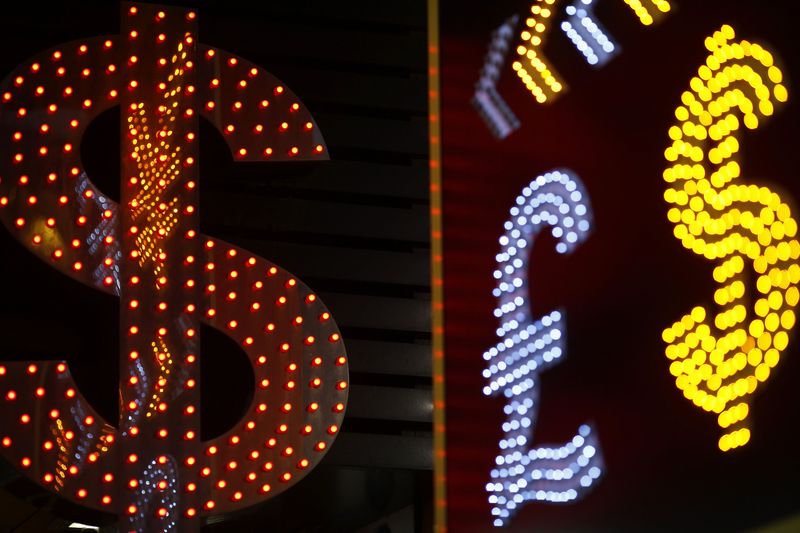* Chinese yuan sees best session in over four months
* India's policy rate likely to be on hold due to rising
inflation
* South Korean won set to post best week in near six months
(Adds text, updates prices)
By Shreya Mariam Job
Dec 13 (Reuters) - Most Asian currencies strengthened on
Friday, as news of a trade truce between the United States and
China helped ease concerns about a slowing global economy.
Washington has agreed to suspend tariffs on $160 billion in
Chinese goods expected to go into effect on Sunday and roll back
existing tariffs in return for Beijing's pledge to hike U.S.
farm product purchase in 2020, Reuters reported based on
sources.
"I believe (China's) aversion to making an agricultural
commitment was a factor holding up a deal up until now, so if
this has now been overcome, it could be viewed as a concession
by the U.S. side," Robert Carnell, chief economist head of
research, Asia-Pacific at ING said in a note.
However, investors are waiting for a formal confirmation
before placing any heavy bets on fears that the tariffs could be
yet imposed if the deal does not go according to plan.
"Fact is, thornier issues such as China's industrial policy
have been left on the backburner, and tariffs may be re-imposed
if execution of the "Big Deal" falls short," Vishnu Varathan,
senior economist at Mizuho Bank, said in a note.
The Chinese yuan CNY=CFXS which has been range-bound for
most of the week firmed as much as 1% to its strongest since
Aug. 2.
The South Korean won KRW=KFTC strengthened about 1.7% for
the week, logging its best week in nearly six months. The won,
which is the worst performing currency in the region so far this
year, has been the worst hit by the prolonged trade war given
its trade dependency on China.
The Indian rupee INR=IN firmed 0.3%, logging its eighth
day of strength against the dollar. The country's retail price
inflation in November jumped to a 40-month high, breaching the
central bank target for a second straight month. Economists say the central bank will likely hold rates
steady due to rising inflation, with the next meeting of the
central bank due in February.
The Philippine peso PHP= was the outlier in the region,
weakening marginally. The country's central bank held its key
policy rates on Thursday on the back of improving growth
outlook.
However, some economists expect the Bangko Sentral ng
Pilipinas (BSP) to resume policy easing next year.
"With growth likely to disappoint and inflation set to
remain below the mid-point of the BSP's target, we expect more
easing next year," a Capital Economics note said on Thursday,
and the research firm expects further cuts of 50 basis points in
2020, taking the policy rate to 3.5%.
CURRENCIES VS U.S. DOLLAR
Change on the day at 0528 GMT
Currency Latest bid Previous day Pct Move
Japan yen 109.580 109.29 -0.26
Sing dlr 1.351 1.3542 +0.21
Taiwan dlr 30.222 30.406 +0.61
Korean won 1169.200 1186.8 +1.51
Baht 30.170 30.19 +0.07
Peso 50.610 50.58 -0.06
Rupiah 13980.000 14020 +0.29
Rupee 70.630 70.83 +0.28
Ringgit 4.139 4.158 +0.46
Yuan 6.969 7.0280 +0.84
Change so far in 2019
Currency Latest bid End 2018 Pct Move
Japan yen 109.580 109.56 -0.02
Sing dlr 1.351 1.3627 +0.84
Taiwan dlr 30.222 30.733 +1.69
Korean won 1169.200 1115.70 -4.58
Baht 30.170 32.55 +7.89
Peso 50.610 52.47 +3.68
Rupiah 13980.000 14375 +2.83
Rupee 70.630 69.77 -1.22
Ringgit 4.139 4.1300 -0.22
Yuan 6.969 6.8730 -1.38
